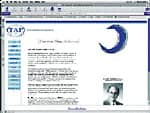A new study by the Université de Montréal, in Quebec, Canada, found that sleep deprivation can be used as a valuable tool in diagnosing somnambulism (sleepwalking) in predisposed patients. In these individuals, sleep deprivation can precipitate sleepwalking.
The study included 40 patients who had been referred to a sleep disorders center for suspected sleepwalking. The patients were allowed to have recovery sleep following 25 hours of monitored wakefulness and regular daytime activities. The authors of the study videotaped and evaluated the behaviors of the patients, ranging from playing with bed sheets to getting up from bed, during recovery sleep.
During the study, 32 behavioral episodes were recorded from 20 sleepwalkers (50%) during baseline sleep, 92 episodes were recorded from 36 patients (90%) during recovery sleep.
“By yielding a greater number of episodes with a wider range of complexity, sleep deprivation can facilitate the video-polysomnographically-based diagnosis of somnambulism and its differentiation from other disorders,” state the authors.
The study will be published in the Annals of Neurology.




